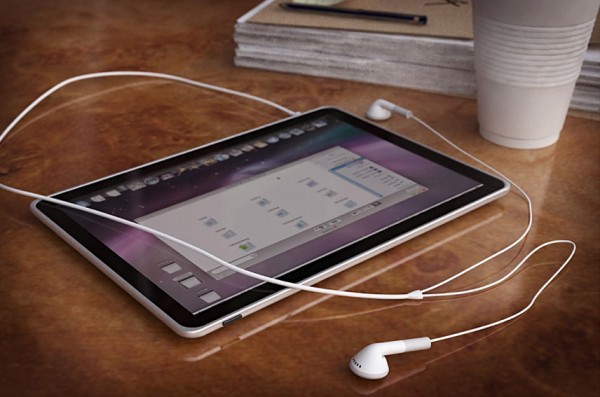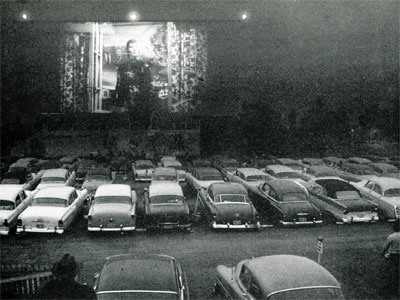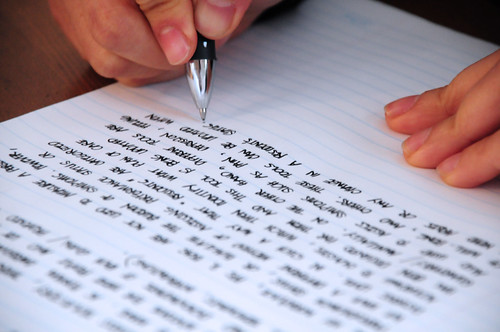 |
| Photo by Bob AuBuchon via Flickr |
One of my greatest fears in life is coming to the day when I can no longer read. Yes, audio books are wonderful, but for me, a died-in-the-wool bibliophile, there's nothing like holding a book. I'm talking about paper books with all their smells and textures, the weight of it in your hands, the cover design, illustrations, the lay-out.
 |
| Book Art by Su Blackwell |
And the content. Yes, the stories, the histories, the adventures, the heartbreaks, the joys, the surprises, the total escape from whatever it going on around me. And the words. Ah, the words. The power of the images the words alone can build. I once commented to a friend about the beautiful illustrations in a book of hers I had borrowed. She looked at me, perplexed, and said, "There are no illustrations in that book." It is the putting together of the words, the images they conjure, that gives me a thrill up my spine. I can still remember a line from a Louise Erdrich book that described the scene of an older gentleman who had Alzheimer's arriving at a relative's house. As he got out of the car, the story's narrator described how his thoughts and memories went tripping out across the lawn to hide in the grass and under rocks. Is that not a beautiful description? Can you not see it?
I know, I'm such a Geek.
All of this is to try to illustrate for you what some of your residents may be feeling. It is the physicality of a book but it is also the content and the process, the "how it makes me feel." Readers are just different like that, compelled to read the way singers are compelled to sing. Whatta ya gonna do? Loosing that pleasure is not insignificant.
So, is it important to read? Yes, without a doubt. Reading has been shown to have several benefits:
 |
| Photo via Memoirs of a Word Nerd (Yea, sure, that's me. Uh huh.) |
All of this is to try to illustrate for you what some of your residents may be feeling. It is the physicality of a book but it is also the content and the process, the "how it makes me feel." Readers are just different like that, compelled to read the way singers are compelled to sing. Whatta ya gonna do? Loosing that pleasure is not insignificant.
So, is it important to read? Yes, without a doubt. Reading has been shown to have several benefits:
Brain Training | A form of cognitive stimulation, a mental work-out. Improves overall brain health in addition to imagination, problem-solving, general knowledge, communication, socialization, and on and on and on ….. |
Stress Relief | Especially fiction. Stress can lead to countless medical problems, the least of which is increased confusion and agitation as well as impairments in coping skills. |
Reduce risk of dementia and memory loss | Reading makes your brain work. It creates increased connectivity between the cells and stimulates the brain. Using the function of the brain, just like using the function of the muscles, increases internal structure and strength. |
Development of healthy sleep patterns | Tied closely to relaxation and stress management. The type of literature being read, especially in the evenings, is important- skip the horror genre. |
Increased concentration | Improves mental focus, objectivity, and decision-making. The increased ability to focus on tasks facilitates success, which leads to improved sense of satisfaction and confidence. |
But imagine if you were passionate about not just reading but also about writing and in your senior years your eyes had betrayed you. You could no longer see to read, or to read what you had written. Enter the Apple iPad.
 |
| Via TheNextWeb |
Below are a couple videos about ways that some of our seniors are using this little bit of techno-heaven to return to passions they had once given up as lost.
The first two videos feature Virginia, whose family gave her an iPad so that she could read and write poetry again. The first is the video her son originally posted on YouTube (and she's a YouTube star in her 100th year!), the second is a news story.
This next video, from April 2010, takes us along as a group of seniors at Greenspring Retirement Community in northern Virginia are introduced to an iPad. Grant it, these individuals are most likely higher functioning and more familiar with technology than a portion of our residents but I think there is a nice cross-section of previous techie-exposure represented here.
The iPad does offers accessibility features such as :
■VoiceOver
■Zoom
■White on Black
■Mono Audio
■Speak Auto-text
And it offers independence. Even if considerations like vision and physically being able to holding a book to read were not issues, we all know that space is an issue in our facilities. Not outer space- personal space. Residents are encouraged to bring personal items to make their new home familiar and comfortable but we all know that there is only so much room in the average nursing home. I cannot even imagine being told that I have to get rid of my books. I don't go to the library or borrow books (generally- if I do and I like it I go buy one- I just wanna have it). I love to sit in a room full of books. What it must be like to give up a precious luxury and pleasure like a personal collection. You avid readers understand this. Those of you who don't read will just have to trust us when we describe our romance with books in glowing and tender terms and struggle with the thought of giving up our books. Ask your reader residents.
 |
| Image via Home Designing |
Two points to make at the end here. First- there are gagillions of apps for the iPad, not just ebooks, and more coming every day. The Apple site says there are 65,000 apps available. The listed categories include business, education, entertainment and games, lifestyle, news, social networking, sports, and travel.
Second- I know they are expensive. If you work at a facility that can- and will- purchase an iPad for your department, I'm coming after your job! Just kidding. But very often families are at a loss as to what to get their loved one for holidays and birthdays. Also, appreciative families sometimes want to make a donation or do something for the facility- and for the Activity Department specifically if you're really lucky. And sometimes, when you go out and ask a business, they will make a donation (be sure to give them great PR). Just sayin' .....
 |
| Via Venture Beat |
Senior-Technology has a more info about some of the features- should you need to make your case. Web Development and Usability also has some interesting comments from seniors who gave the iPad the once over.
So what does this have to do with creativity? We've seen Viriginia return to writing poetry after she received her iPad. Did you notice the look of pleasure on her face. We watched the delightful woman at Greenspring discover the music app and we saw them all exploring and learning and creating new brain connections as they played around wih the iPad. And there are plenty of apps for drawing and photo editing, music compostion, games, and on and on it goes, so it's not just a one horse show. It's all about the cognitive activity. And it's all about new cognitive activities in terms of developing new pathways of stimulation, functioning and self-expression.
No- sadly, I don't have an iPad and the friend who lent me hers had to all but pry it out of my hands at the end of the day. I would most likely not ever get one just for reading. (Yes, on a long flight but an iPod is so much smaller.) Thank goodness for all those apps.
If you have an iPad, I would love for you to share with us some of the fun features you've discovered , especially those features that can open a new world for our residents. Just click on "Comments" at the end of this post.
Thanks for stopping in today--- have a great one!












































